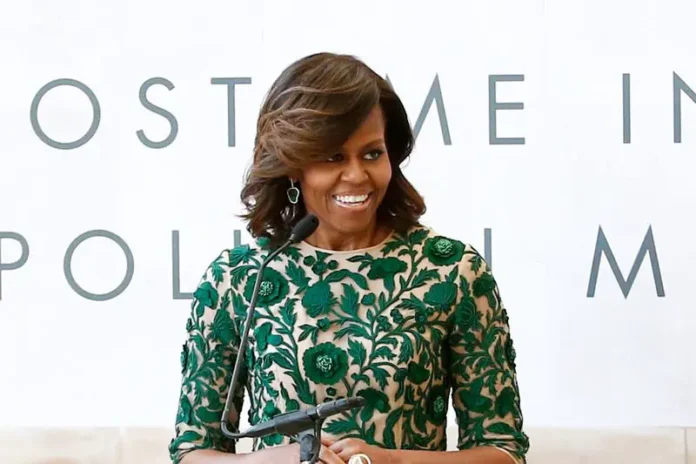Former First Lady Michelle Obama has stated bluntly that America remains unprepared to elect a woman president, citing the results of the 2024 election as proof that the nation has significant progress to make on gender equality in political leadership.
During a conversation with actor Tracee Ellis Ross at the Brooklyn Academy of Music, on November 5, 2025, Obama dismissed any speculation about her own presidential ambitions while explaining why she believes the country is not ready for female leadership at the highest level.
“As we saw in this past election, sadly, we ain’t ready,” Obama said. “That’s why I’m like, don’t even look at me about running, because you all are lying. You’re not ready for a woman. You are not.”
The discussion was posted to Obama’s YouTube channel on Friday, November 14, 2025, as part of promotional events for her new book “The Look,” which explores fashion and politics during her years in the White House. Obama served as first lady from 2009 to 2017 alongside her husband, former president Barack Obama.
Ross asked Obama whether the traditional first lady role, with its associations to conventional femininity and supporting the president, has affected the space available for a woman to lead the country herself. Obama’s response was direct, stating that many men do not feel they can be led by a woman and that the country has growing up to do.
The former first lady’s comments come after Vice President Kamala Harris lost the 2024 presidential election to President Donald Trump. Harris and Hillary Clinton were the last two Democratic women nominees for president, and both lost their elections to Trump.
Obama actively campaigned for Harris in 2024, including holding a rally for her in Michigan before the election. During that campaign appearance, she urged voters to support Harris and warned about threats to women’s health and reproductive rights. Despite Obama’s star power and popularity, the Democratic ticket ultimately fell short.
Voting patterns from recent elections highlight shifting gender dynamics in American politics. According to the data Obama referenced, 50 percent of men voted for President Joe Biden in 2020, but 55 percent of male voters backed Trump in 2024. This shift among male voters suggests growing resistance to female leadership at the presidential level.
The speculation about Obama running for president has persisted for years, fueled partly by polling that showed her as one of the most admired women in America. A 2024 poll even suggested that only Obama could beat Trump in a hypothetical matchup. However, she has repeatedly and firmly declined to run for office over the years.
The conversation between Obama and Ross touched on how the first lady position shapes public perceptions of women in power. As the first Black woman to serve as first lady, Obama’s fashion choices and public presence were scrutinized intensely, topics she explores in “The Look.” The book examines how she navigated expectations and used her platform during eight years in the White House.
Obama’s frank assessment reflects a broader conversation about gender and electability in American politics. While women have made significant gains in congressional and gubernatorial races, the presidency remains an elusive goal. The United States lags behind numerous other nations, including several traditional allies, that have elected female heads of state or government.
The former first lady emphasized that resistance to female leadership is not merely about individual candidates but about deeper cultural attitudes. She suggested that significant segments of the male electorate remain uncomfortable with the idea of a woman in the nation’s highest office, regardless of her qualifications or political positions.
By connecting her refusal to run with the country’s lack of readiness, Obama made clear that she views a potential candidacy as futile given current attitudes. Her message was pointed: until Americans demonstrate genuine willingness to elect a woman president, she sees no reason to pursue the office herself.
The November event in Brooklyn provided Obama a platform to discuss both her experiences as first lady and her observations about women’s prospects in American politics. Her remarks suggest that breaking the highest glass ceiling will require not just the right candidate, but a fundamental shift in voter attitudes about gender and leadership.

